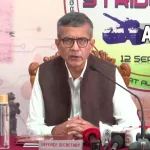At a time when the world is grappling with issues of trust, transparency, and integrity, it is critical to revisit the timeless wisdom contained in the Holy Quran and Sunnah of the Prophet (SAW), which have consistently emphasized the importance of honesty as a fundamental virtue.
According to the Holy Quran, the importance of honesty is underscored repeatedly. A profound verse, Surah Al-Baqarah (2:42), instructs, “And do not mix the truth with falsehood or conceal the truth while you know [it].”
This verse is a clear admonition against dishonesty in all its forms. It speaks to the inherent value of truthfulness, underscoring that it is not only a moral obligation but also a sacred one. Moreover, the Holy Quran places honesty as a defining characteristic of a true believer.
The believers are described in Surah Al-Mu’minun (23:1-8) as those who are honest and trustworthy. The implication is clear: honesty is not a mere optional attribute; it is a fundamental aspect of a Muslim’s identity. Also, the teachings and actions of the Holy Prophet (SAW) further illuminate the importance of honesty.
There are numerous Hadiths, or sayings of the Prophet, that underscore honesty’s significance. One such Hadith reported by Sahih Al-Bukhari states, “Truthfulness leads to righteousness, and righteousness leads to Paradise. A man keeps on telling the truth until he becomes a truthful person.” This Hadith not only emphasizes the importance of honesty but also highlights the transformative power of persistent truthfulness. Honesty has the power to mold an individual’s character, guiding them towards righteousness and, ultimately, Paradise.
Holy Prophet (SAW) also demonstrated the importance of honesty through his actions. Known as ‘Al-Amin’ or ‘the trustworthy’ long before his Prophethood, he embodied the virtue of honesty, setting a timeless example for all. However, honesty according to the Holy Quran and Sunnah goes beyond simply telling the truth. It extends to fulfilling promises, being fair in trade, not cheating or deceiving others, and maintaining integrity in all aspects of life.
In our modern world, where dishonesty can seem like a shortcut to success, these teachings are a potent reminder that honesty is not outdated or irrelevant. Instead, it remains a critical component of personal character and societal well-being. It is the key to building trust in relationships, sustaining social cohesion, and fostering a just and equitable society.
As we confront the challenges of our time, let us remember the wisdom of the Holy Quran and Sunnah, which emphasize honesty as a non-negotiable virtue. In these teachings, we find a blueprint for personal growth, communal harmony, and societal progress – a testament to their timeless relevance.
By cultivating honesty in our lives, we not only adhere to these sacred teachings, but we also contribute to a more truthful, trustworthy, and just world.
(Author is research scholar in Islamic studies)








